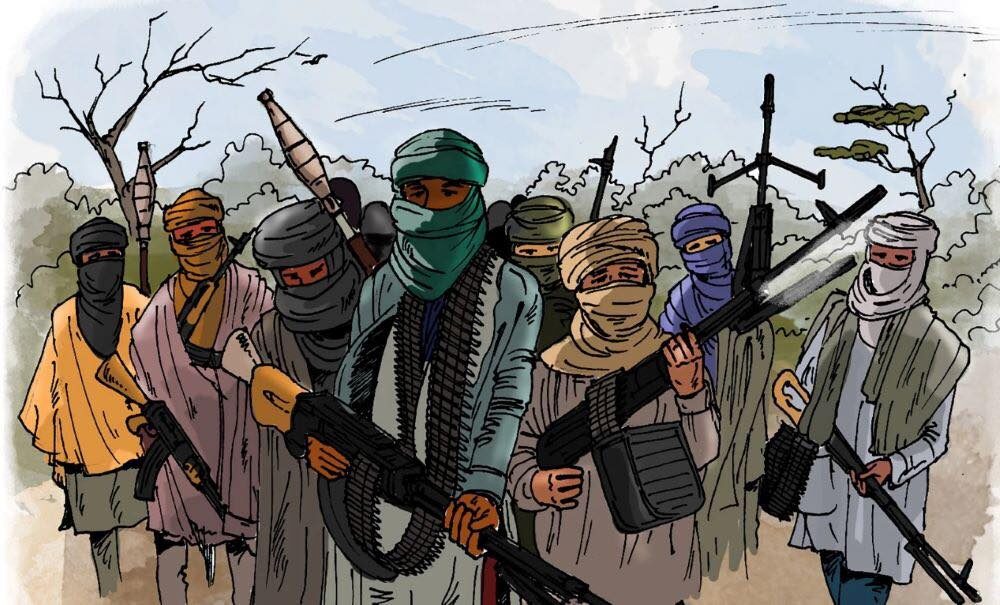Digital Radicalisation in Nigeria: Faith-Based Solutions
By: Vol. Ali Fahd | 14.07.2025
Ed. 219
With over 70% of its population under the age of 30, Nigeria stands at the centre of the youth bulge, and rapid digital expansion presents both opportunities and threats. With more than 150 million internet users, social media has become a space for identity formation, spiritual inquiry, and ideological contestation in Nigeria.
While democratizing access to religious knowledge, these platforms have also been exploited by extremist groups like Boko Haram and the Islamic State West Africa Province (ISWAP) to recruit vulnerable youth and spread propaganda. For millions of Nigerian youth, platforms like WhatsApp, Facebook, Instagram, TikTok, and YouTube are no longer mere channels of entertainment; they have become spaces of identity formation, spiritual inquiry, political expression, and, increasingly, ideological contestation. This growing digital penetration presents both opportunities and threats.
In this context, social media and video platforms have democratised access to religious knowledge, allowing young Nigerians to engage with sermons, scripture-based discussions, and interfaith dialogues that were previously confined to traditional institutions like mosques, churches, and religious schools. Extremist groups utilise encrypted messaging apps and social media to disseminate ideologically loaded content, often framing local grievances through global jihadist narratives.
Reports reveal that these actors craft emotionally charged content, often under the guise of religious obligation, to exploit the psychological uncertainties and socio-political frustrations that many young Nigerians face. Mediatisation theory suggests that media reshape domains such as religion, and in Nigeria, digital preachers compete in a saturated ecosystem where theological authority is tied to virality and rhetorical persuasion.
Nigeria’s faith-based education system often operates without integrating digital literacy, civic learning, or critical pedagogy, leaving students vulnerable to ideological exploitation. Almajiri schools and church-run institutions prioritise doctrinal memorisation over ethical reasoning and societal engagement.
The education system is in crisis, with millions of children out of school and lacking basic literacy and numeracy skills. The proliferation of informal religious schools without national oversight complicates the landscape, and many religious educators lack essential training in digital literacy, civic engagement, and peacebuilding.
Toward a Nigerian Model of Mediatised Religious Education
A Nigerian model of mediatised religious education must meet youth where they are: on their screens. This involves producing short-form, emotionally resonant, and theologically sound content that presents Islamic and Christian values as relevant tools for real-life conflict and social responsibility. Such a model would involve producing video sermons, animations, podcasts, and storytelling reels that promote peaceful interpretations of Islam and Christianity.
By integrating religious perspectives into such formats and involving imams, pastors, media influencers, and educators in the co-design process, Nigeria could develop a counter-narrative strategy rooted in both faith and media fluency.
To promote faith-based peacebuilding in the digital age, experts have proposed three key strategies. First, support youth-driven digital content by involving them in co-creating peaceful religious messages through fellowships and hackathons. Second, increase state and donor funding for digital religious literacy and multimedia counter-narratives. Third, train both religious leaders and journalists in digital literacy, ethics, and conflict-sensitive communication to ensure responsible engagement with religious issues online.
The battle against radicalisation in Nigeria requires transforming how religion is taught, felt, and shared in the 21st century. Mediatised religious education, grounded in interpretive pedagogy, critical thinking, emotional storytelling, and digital engagement, offers a powerful counterweight to extremist narratives.
Through empowering youth to reconstruct their religious identities on the foundations of empathy, pluralism, and civic responsibility, Nigeria can promote faith-based peacebuilding in the digital age. In the hashtag age, peacebuilding is not just a matter of content; it is also about code, community, and creative faith.
Note: This article acknowledges multiple works.
Image Credit: PR News



